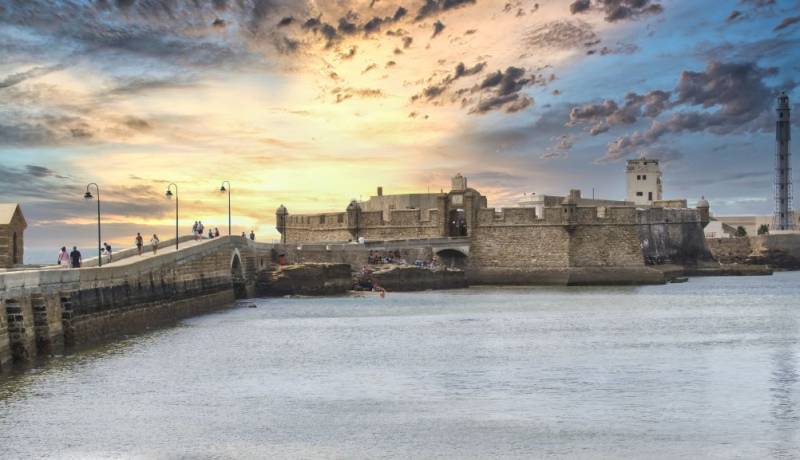Spanish News Today Editors Roundup Weekly Bulletin Aug 2
TOP STORIES: "Wildfires worsen as heatwaves refuse to let up" & "The foreigners without papers who could soon be made legal in Spain"
Welcome to August! It shouldn’t be any surprise that it’s hot – it’s the height of summer in Spain, after all – but once again heat records are being broken worldwide. The planet is definitely warming up.
It’s also wildfire season for Spain, and while so far it hasn’t been a massively destructive year in terms of forest fires, the incendios are starting to become more frequent.
In other news this week, a surprising twist of fate may be in store for any foreign citizen who has been living in Spain without papers for more than three years.
Is it hot enough for ya?
We must all be hearing this question on a daily basis at the moment and although things are set to
cool off a little over next few days, there’s plenty more sunburn, sweat and sweltering temps to endure before we get there.
Spain is currently in the grip of yet another scorching heatwave, the third of the season so far, with temperatures soaring to unprecedented highs.
But plenty of other places are also feeling the heat, and our little planet has actually just endured its
hottest day in recorded history, with July 22 surpassing all previous temperature records globally.
For anyone sweating through the Spanish summer, this news will come as no surprise, as the preceding days had already broken records, with both July 21 and 23 reaching all-time highs.
It’s hard to imagine anything quite as bad as the series of punishing heatwaves that blasted through Spain last summer, but this year has indeed beaten out the previous record set in July 2023.
According to NASA, these extreme temperatures are fuelled by human activities, particularly the emission of greenhouse gases, which are contributing to a long-term warming trend.
NASA Administrator Bill Nelson emphasised the urgency of the situation, stating, “In a year that has been the hottest on record, these past two weeks have been particularly brutal.”
Climate change is not a distant threat but a crisis unfolding before our eyes, and while we struggle through muggy, sleepless nights, Spain is also battling wildfires, with blazes tearing through southern regions.
Firefighters are currently tackling a
blaze in Benasau, which has already scorched more than 300 hectares of land. The extreme heat, dry terrain and changing winds have made this fire particularly challenging, prompting the evacuation of nearly 800 people.
But global warming can’t be blamed for this disaster; rather, a solitary spark from a worker using a radial saw led to this mass devastation.
As a result, the regional government in Alicante has declared an extreme level of pre-emergency for the risk of forest fires in the north of the province and a high level in the south.
It’s a similar story in Castilla-La Mancha, where a fire in Valverdejo, Cuenca, has already burned 2,000 hectares.
In Murcia, too, a wildfire apparently caused by human action (whether deliberate or involuntary is as yet unclear) blazed this week
in the countryside of El Valle, an area that has seen several other fires in recent weeks.
So is there any relief to be had? Believe it or not, the answer is actually a resounding yes, and the place to cool off this summer might just surprise you.
Towns like Trevélez, Villaluenga del Rosario, Serón and Ronda provide a refreshing escape, earning the title of ‘climatic survivors’.
Trevélez, nestled in the mountains of Granada, boasts daytime highs of just 20ºC and pleasant nights around 12ºC.
Villaluenga del Rosario in Cádiz offers maximum temperatures of 30ºC and lows of 17ºC, along with its famous cheeses.
Serón, an Almería oasis, enjoys a cooling breeze that keeps the real feel temperature lower, while Ronda, perched above Málaga, provides slightly warmer days but comfortably cools down to 17ºC in the evenings.
We’re still in the thick of the dog days, but this is already proving to be a summer to remember in Spain, and not always for good reasons.
So, stay cool, stay safe and keep an eye out for one another during these scorching days and nights.
Let’s hope for a break in the heat soon!
500,000 foreigners in Spain could be made legal
So a somewhat under-remarked but remarkable thing might be about to happen in Spain that could affect up to half a million undocumented foreigners living in the country. The Congress of Deputies has given the green light to start the legislative process for potentially
regularising the status of about 500,000 migrants.
This proposed law, which is being given the catchy name ‘2024 mass regularisation proposal’, aims to grant legal residency and work rights to those currently living in the country illegally.
The initiative has garnered significant support from both parliament and the public, and is under consideration by the Spanish Congress, with a final decision expected after September 2024.
Although the proposal is still in its early stages and subject to changes, historical precedents like the 2005 regularisation, which granted legal status to over 600,000 people, provide some insight into what might be expected.
If approved, the new law would likely benefit individuals who entered Spain irregularly before November 1, 2021. Applicants would probably need to have a job offer (though not necessarily an employment contract) from a Spanish company. Additionally, as with most immigration processes, they would need to present a certificate proving they have no criminal record.
It’s still only at the proposal stage right now, and there will be several committee discussions, amendments and votes to go yet, all of which could take several months. But if passed, it could benefit people who may be living in Spain right now but not be fully legal for whatever reason. If you think this may affect you, you should consider seeking professional advice for more information and instructions on how to proceed with legalising your status.
Murcia
The boy, named Emmanuel, had gone swimming with friends despite the red flag warning indicating dangerous conditions due to strong winds and rough seas.
After he failed to return to shore, his friends reported his disappearance and the emergency rescue services sprang into action. Rescue efforts, including the deployment of jet skis and helicopters, continued throughout Monday afternoon and into the evening, but were unsuccessful in locating him.
Tragically, Emmanuel’s
body was found the next day near Playa de las Sirenas in La Manga. His family and friends described him as a conscientious young man who was “always willing to help out”.
In other regional news,
all lanes of the RM-19 Mar Menor autovía have been reopened after months of traffic disruptions. The road, which runs from San Javier past La Torre Golf Resort to Corvera, was partially closed back in January to facilitate work on the high-speed train line to Cartagena, and for 6 months now only one lane in each direction of the dual carriageway has been open.
While the road was expected to reopen by mid-June, delays pushed this date back. Still, better late than never, and it is hoped that the temporary reopening will help to ease increased summer traffic. Don’t expect it to last for long, though, as it will revert to just one lane going each way from September 15 as work continues.
This has been a source of frustration for many motorists who have experienced significant traffic jams, especially on weekends, but the reopening is expected to ease congestion for now.
Meanwhile, the Mar Menor lagoon itself has seen the
installation of jellyfish nets for the first time since 2021. These nets are crucial for preventing jellyfish from crowding the shores, especially in the northern areas around San Pedro del Pinatar where they have been proliferating the most this summer.
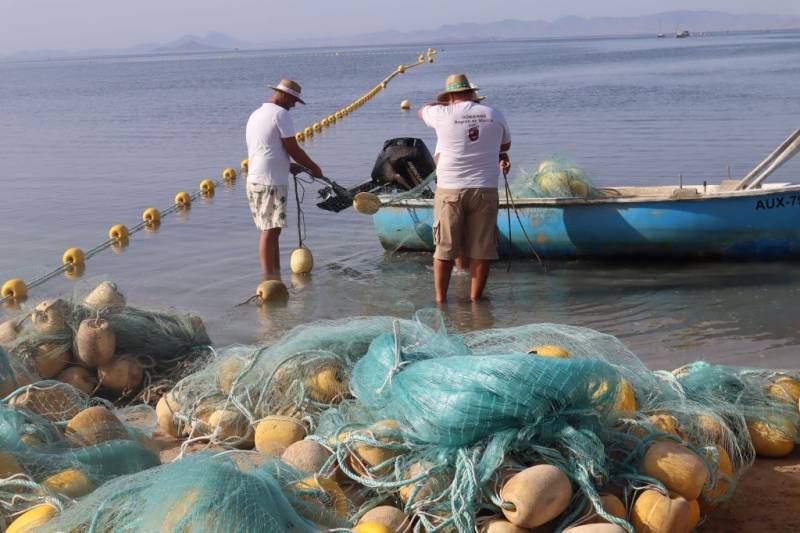
Beaches like Playa de los Villananitos, Playa de la Mota and La Puntica are among the locations where these barriers are being set up. The decision to reintroduce the nets was made due to a notable increase in jellyfish populations, which had become a nuisance for swimmers.
Three years ago, towns around the Mar Menor and the regional government of Murcia decided not to put the nets in any more due to concerns about degradation of the water quality from a build-up of seaweed. However, the annoyance caused by the overabundance of jellyfish last summer has prompted a change in strategy for this year.
The regional Ministry of the Environment and local councils, with scientific committee approval, decided to take a targeted approach by installing nets only where necessary. This year’s research by the University of Murcia indicates fewer jellyfish overall compared to 2023, but the northern part of the Mar Menor still has significant populations.
Jellyfish or no, it seems that nothing can stop the growth of Murcia when it comes to tourism. The Region is rapidly becoming one of Spain’s top, if still lesser-known, holiday destinations. According to flight and hotel search engine Jetcost, there has been a noticeable
increase in searches for flights and holiday accommodation in Murcia.
For August 2024, flight searches to Spain were up by 12%, and hotel searches rose by 14% from the previous year. Murcia has particularly captured the interest of European tourists from the UK, the Netherlands, Portugal and Italy, ranking within the top 20 most searched destinations by citizens from these countries.
The Region’s appeal, according to the Jetcost study, lies in its rich cultural heritage, captivating history and the ever-alluring Mediterranean climate. The combination of reasonable prices, delectable cuisine and beautiful beaches makes it an attractive choice for tourists seeking an authentic yet affordable Spanish experience. Interestingly, not only is Murcia gaining traction among international visitors, but it also ranks as the 29th most sought-after destination among Spaniards themselves.
See our EVENTS DIARY for events and activities coming up soon in the Region of Murcia:
Spain
Have you ever arrived at the beach to discover you’ve left the cooler full of snacks and drinks on the kitchen counter, or dug through your bag to find that the sunscreen is still in the bathroom cabinet? You’re certainly not alone, but now there’s a handy solution.
This summer,
Uber Eats is taking its services to the shores, offering food and grocery deliveries directly to beachgoers on ten popular Spanish beaches. It’s a game-changer for sun-seekers, providing convenient access to everything from sun cream to ice cream and all your beach day essentials.
Last year, Uber Eats tested the waters with a pilot at Playa de las Canteras in Las Palmas, and more than a thousand orders were placed through the platform at this beach alone.
The Californian company now offers its food delivery service at Can Pere Antoni Beach (Mallorca), En Bossa Beach (Ibiza), Llevant Beach (Benidorm), San Juan Beach (Alicante), Port Saplatja Beach (Valencia), Playa de las Canteras (Las Palmas), Playa de la Concha (San Sebastián), Playa de Lloret de Mar (Costa Brava), Playa de Villananitos (San Pedro del Pinatar-Murcia) and Praia de Samil (Vigo).
Customers will be able to choose from a catalogue of more than 17,000 shops and restaurants, so there’s no need to sand in your sandwiches or warm drinks.
These delicious ham treats are just one casualty of the new EU-wide regulation though. The ban extends to other products, as these smoky flavourings are also used in meats, fish, cheeses, soups, sauces, drinks, ice cream and sweets.
While the outright ban is slated to come into force in the spring of 2025, supermarkets and other food retailers will be given another two to five years to modify or remove products containing these additives from supermarket shelves.
Speaking of beaches, what’s the most off-putting thing about the beach? Sand, right? Well, maybe not for everyone, but it is kind of anyone how no matter how hard you shake, half the beach still seems to end up at the bottom of your bag or, even worse, back in the car.
Well, get ready to say goodbye to sandy towels and hello to a
viral hack that’s taking social media by storm. A simple, cost-effective trick is doing the rounds, shared by presenter, singer and actress Paula Dalli to her 50,000 Instagram followers.

According to Dalli’s vid, something as simple and common as a fitted sheet can create an “incredible fort against the sand.” Dalli explains that the elastic bands on the corners will keep the sand out, creating a cosy space for you to relax.
She demonstrates how to secure the four corners of the sheet using backpacks or beach bags, providing a handy barrier.
But what about keeping your feet sand-free when you step into your little oasis? Dalli has a solution for that too. She suggests having a bucket of water nearby to rinse your feet before stepping onto your towel, or if you want to travel light, a simple bottle of water filled with seawater will do the trick.
What do you think? Would you try any of these tricks? Will they actually work?
According to local sources, the Briton was on holiday in Spain, but this has yet to be confirmed by officials.
A Spanish man has since been arrested for the attack, but National Police officers leading the probe refuse to say more than “the incident remains under investigation”.
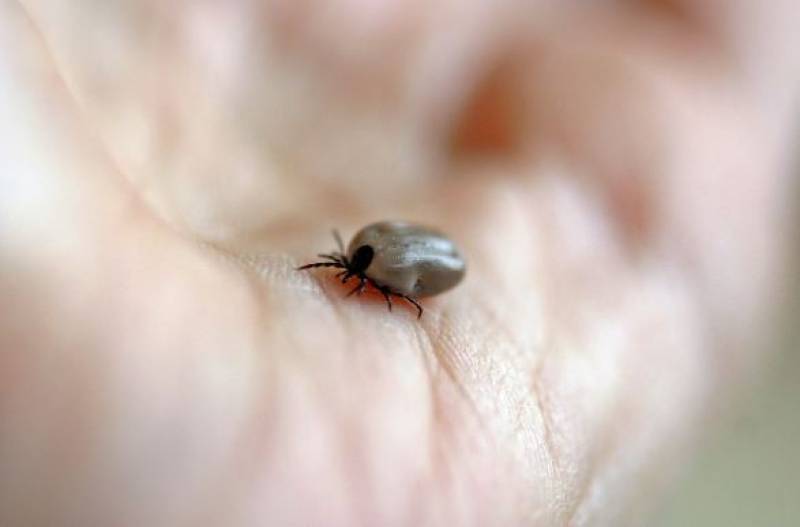
The victim went to the emergency room complaining of a fever and general malaise and was dead less than 24 hours later.
In May, the Ministry of Health for Castilla y León in northwestern Spain issued an urgent warning for holidaymakers after another patient died from the disease following a tick bite in Salamanca.
Crimean-Congo Haemorrhagic Fever is a viral disease transmitted primarily by ticks, specifically the Hyalomma tick, which originated in Africa. This serious illness has two distinct phases.
The first phase begins with a sudden fever, headache and muscle pain. This initial stage is followed by the more severe haemorrhagic phase, which can be life-threatening.
It is crucial to be aware of the symptoms and seek medical attention promptly if you experience any of these warning signs.
Alicante
This time around, the five days of industrial action will run from Wednesday July 31 until Sunday August 4, between the hours of 8.30am and 9.30am, and again from 6pm to 7pm.
Jet2 has released a statement predicting “congestion” at the security gates over the weekend, so passengers should arrive a little earlier as all of the flights are still scheduled to take off on time.
“Please allow extra time to pass through check-in and security. Your flight is still due to depart at the scheduled time and check-in will close 40 minutes before a flight’s departure time,” the website states.
“Jet2holidays customers can be assured that transfers have been arranged to ensure you have enough time to pass through security.”
The 32-year-old British bodybuilder, described by police as a “martial arts expert”, was wanted on a European Arrest Warrant for the attempted murder of two US soldiers who he attacked outside a restaurant last month.
According to official reports, the bodybuilder launched a “surprise and unprovoked attack” on the two victims on June 2, who were knocked out cold by the British man’s punches. But even while the soldiers were unconscious on the ground, he continued to rain kicks on the two men.
“The two soldiers were seriously injured and at one point their lives were deemed to be at risk,” the police added.
The Briton is now awaiting extradition to the UK where he faces 15 years behind bars if convicted of attempted homicide.
It all began during a routine training exercise when divers from the Navy's Mine Countermeasures Diving Unit (UBMCM) stumbled upon something unusual – a potentially deadly explosive device.
The Special Explosive Ordnance Disposal Team (EDE) was quick to recognise the potential threat. The device, hidden just 400 metres from the shore and nine metres below the surface, was completely camouflaged by marine life.
It took the keen eyes of the GEAS divers to spot it, triggering an urgent notification to the Centre for Operations and Surveillance of Maritime Action of the Navy (COVAM) in Cartagena.
Luckily though, the bomb was safely detonated under the water and no longer considered a threat.
Andalucía
While there are plenty of urbanisations and communities, especially in the south of Spain, which are made up either entirely or of a majority expat population, there are certain responsibilities a community president has which should ideally require a knowledge of Spanish. As such, the new rule passed by the Torres de San Andrés community in Málaga aims to ensure smooth communication and adherence to these legal requirements, which can often be complex and language-specific.
José Antonio Sierra, from the association Diversidad y Convivencia, supported this move to avoid the need for interpreters not recognised by the Spanish Constitution. The association has gone further than that, though, and proposed a nationwide reform of the Horizontal Property Law, which governs community statutes, to mandate that proficiency in Spanish be made a requirement for community presidents across all of Spain.
This 18th-century fort, which will be instantly recognisable to anyone who has wandered past the famous Playa de la Caleta and which has variously served as a defensive installation, a prison and a movie set over the years, will welcome visitors again thanks this month of August after work was finally carried out to clear it up and start conservation efforts.
Up until now, the place has effectively been bolted shut and left to rot because no one could quite work out who would be responsible for making sure it didn’t fall into disrepair, and all the while the bills for renovations mounted up.
Now, at long last, the castle’s exterior will be accessible to the public from mid-August until the end of September, marking the first phase of a larger project to permanently transfer ownership to the city and develop a long-lasting conservation plan.
These sharp devices are attached to boat rudders and are intended to injure the killer whales in response to increased interactions between the animals and boats which have sometimes led to significant damage to vessels.
Some have said it’s understandable that some boat owners would take this step, having possibly sold everything they own to put their life savings into a boat, only to have it trashed by whales. But the fact is that most of the boats that have been attacked by orcas is because they have strayed into known whale territory, and they are not respecting the proper ocean environment or assessing the risks of their actions.
The Sea Shepherd group, working with WeWhale, is patrolling the area to protect the whales and assist sailors, emphasising that orcas are not aggressive and that no human has ever been harmed by a wild orca. They are also preparing to sue those using the harmful equipment, underscoring the importance of protecting these majestic creatures.
The encounter occurred in the early hours of Tuesday morning when the woman, who was about to go to sleep, noticed a large tail sticking out from behind her headboard. Terrified, she immediately called Emergencias Sevilla.
The operator reported that the caller was crying and very frightened. Emergency responders, including firefighters and local police, arrived quickly to capture the snake and take it to an animal shelter.
The woman had no idea how the metre-long reptile got into her home nor, perhaps more distressingly, how long it had been lurking under her bed!
You may have missed…
- Murcia photo of the month August 2024.
Here is the top image of the month taken by Harry Holt from the Los Alcázares Digital Camera Club (LADCC) on the theme of ‘The Golden Hour’.
- Massive surge in abandoned animals in Spain this summer.
Last year, around 140,000 vulnerable dogs were abandoned in Spain, and this number always goes up in summer.
- Tourists who had to cancel trips during Covid are now entitled to a full refund.
Millions of holidays around the world were put on hold when the coronavirus pandemic hit in 2020, leaving tourists not only disappointed, but also out of pocket. Now, four years later, the Court of Justice of the European Union (CJEU) has ruled that travellers who cancelled their package holidays as a result of Covid must be reimbursed, even if the companies they made the booking through have since gone bust.
- English boat owner in hot water after crashing off Alicante.
The Alicante maritime rescue branch of the Guardia Civil was recently tasked with the tricky job of aiding an English leisure boat that was drifting perilously close to the rocks off the coast of Postiguet beach.
- Why summer is the best time to get excited for the Christmas panto in Murcia, according to Murcia panto group.
It may be August but the Adapt Theatre Group are already busy preparing for their Crimbo panto...
And that’s all for this week. Thanks for reading and we’ll be back next week.
Bye!
article_detail

|



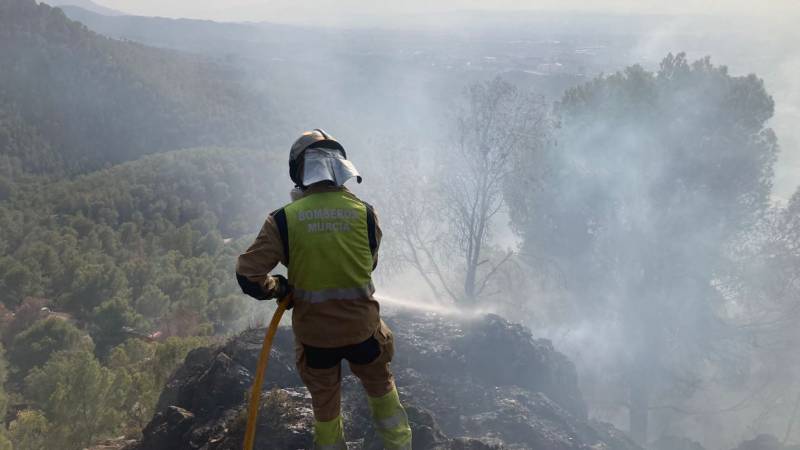


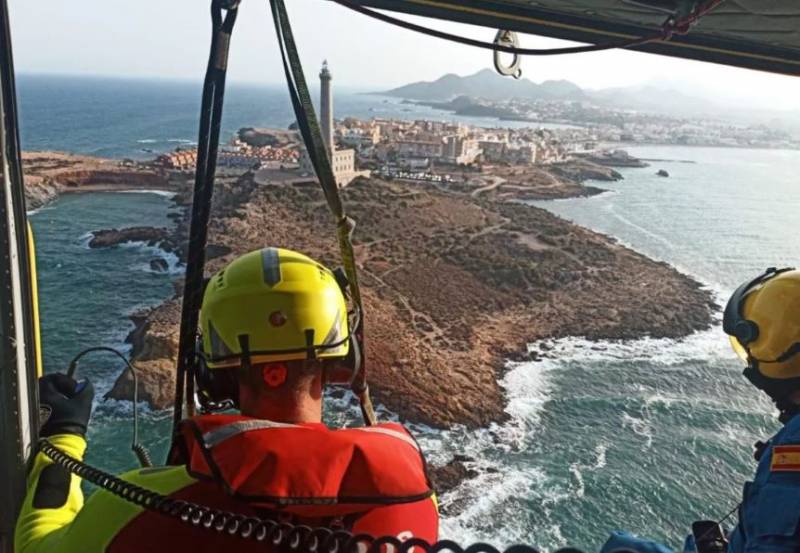 The big occurrence in Murcia this week was the disappearance at sea on Monday of a 17-year-old boy off the Playa de las Amoladeras, located between Cabo de Palos and La Manga del Mar Menor.
The big occurrence in Murcia this week was the disappearance at sea on Monday of a 17-year-old boy off the Playa de las Amoladeras, located between Cabo de Palos and La Manga del Mar Menor.
 Beaches like Playa de los Villananitos, Playa de la Mota and La Puntica are among the locations where these barriers are being set up. The decision to reintroduce the nets was made due to a notable increase in jellyfish populations, which had become a nuisance for swimmers.
Beaches like Playa de los Villananitos, Playa de la Mota and La Puntica are among the locations where these barriers are being set up. The decision to reintroduce the nets was made due to a notable increase in jellyfish populations, which had become a nuisance for swimmers.
 According to Dalli’s vid, something as simple and common as a fitted sheet can create an “incredible fort against the sand.” Dalli explains that the elastic bands on the corners will keep the sand out, creating a cosy space for you to relax.
According to Dalli’s vid, something as simple and common as a fitted sheet can create an “incredible fort against the sand.” Dalli explains that the elastic bands on the corners will keep the sand out, creating a cosy space for you to relax. The victim went to the emergency room complaining of a fever and general malaise and was dead less than 24 hours later.
The victim went to the emergency room complaining of a fever and general malaise and was dead less than 24 hours later.
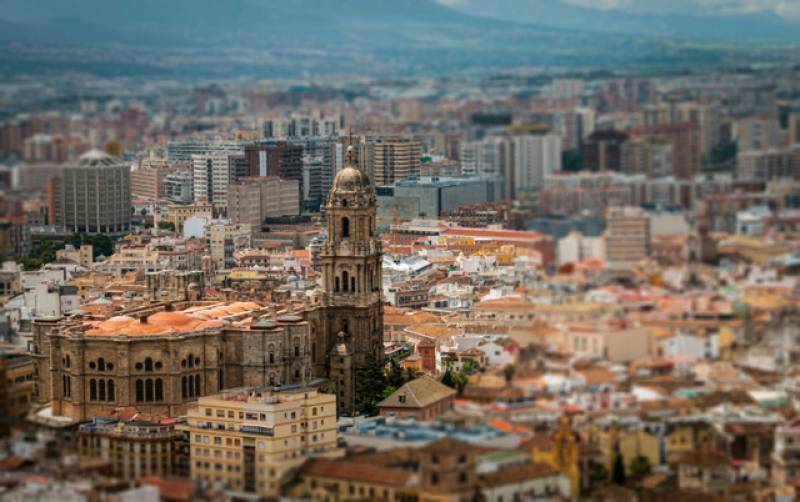 Finally, some news from around Andalucía. We start in the province of Málaga, where a community of property owners has decided that anyone who holds the role of community president must be proficient in Spanish.
Finally, some news from around Andalucía. We start in the province of Málaga, where a community of property owners has decided that anyone who holds the role of community president must be proficient in Spanish.